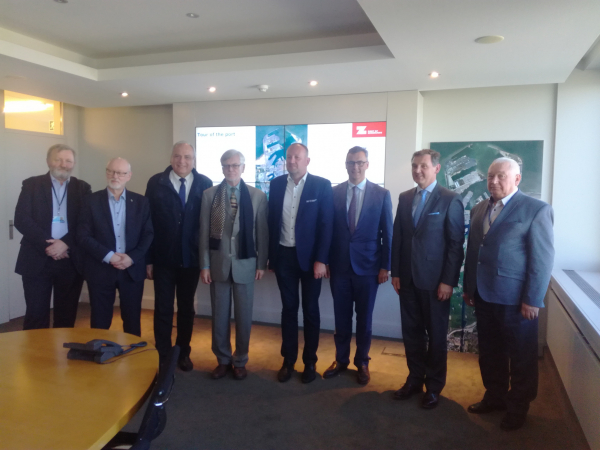The impact of Brexit on Northern European ports

ECR Group Member Vytautas Kanevičius (Mayor of Kazlų Rūda in Lithuania) visited the Belgian port of Zeebrugge on 26 April this year to investigate the impact of the UK's decision to leave the European Union on port cities in Northern Europe. Visiting the North Sea port, our Lithuanian Member underlined the need to review business models and maintain close relations between local authorities in order to mitigate possible negative consequences of Brexit.
"Brexit will hit each and every one of the EU Member States – some more, some less, but the withdrawal of such a huge state from the Union will be painful overall". Mr Kanevičius emphasised that it was therefore of paramount importance to establish close cooperation between local authorities and stakeholders who currently had strong business ties with the United Kingdom. "It is important to fundamentally review business development strategies in order to mitigate the economic impact of Brexit. This also applies to the seaport of Klaipeda in Lithuania", Mr. Kanevičius explained.
Klaipeda is the largest seaport in Lithuania. It serves as a port of call for both cruise and freight ships. Lithuanian-UK trade links are strong: the UK is Lithuania's sixth largest trade partner and trade with the UK accounts for 6% of Lithuania's trade with the EU. Among Lithuania's main exports are furniture, wood, timber, textiles and food.
Ports in northern Europe are likely to be affected by the uncertainties Brexit may cause, and the port of Zeebrugge could be the worst hit of all, since more than 45% of its trade is UK related. It is estimated that 5,000 jobs in the Belgian port are directly linked to trade with the UK trade.
The Managing Director of the port of Zeebrugge, Joachim Coens, talking about the expected impact of the UK's withdrawal from the EU on the port of Zeebrugge, said he remained optimistic that trade between the EU and the UK via Zeebrugge would continue after the withdrawal. However, both he and Mr Kanevičius agreed that more clarity about the transition period and future relations was needed.

